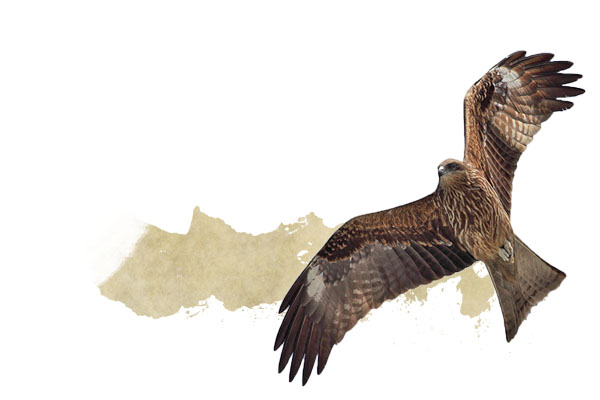The Ranger, Relaunched
Here we propose a 'relaunch' of the Ranger, looking again at the core class as presented in the Players' Handbook, in the context both the alternate class features suggested by Mike Mearls in his 2018 Happy Fun Hour live stream along side the Ranger, Revised. Elements of both are ported in selectively, with the intention of delivering a ranger that is robust, balanced and flexible -- embodying the essence and thematic vision of the class, to be enjoyed by players and DM's alike.
Class Features
As a ranger, you gain the following class features
Hit Points
- Hit Dice: 1d10 per ranger level
- Hit Points at 1st Level: 10 + your Constitution modifier
- Hit Points at Higher Levels: 1d10 (or 6) + your Constitution modifier per ranger level after 1st
Proficiencies
- Armor: Light armor, Medium armor, Shields
- Weapons: Simple weapons, martial weapons
- Tools: Herbalism Kit
- Saving Throws: Dexterity, Strength
- Skills: Choose three from Animal Handling, Athletics, Insight, Investigation, Nature, Perception, Stealth, and Survival
Equipment
You start with the following equipment, in addition to the equipment granted by your background:
- (a) scale mail or (b) leather armor
- (a) two shortswords or (b) a martial weapon
- (a) a dungeoneer’s pack or (b) an explorer’s pack
- A long bow and a quiver of 20 arrows
The Ranger
| Level | Proficiency Bonus |
Features | Spells Known |
1st | 2nd | 3rd | 4th | 5th |
|---|---|---|---|---|---|---|---|---|
| 1st | +2 | Favored Enemy, Natural Explorer | — | — | — | — | — | — |
| 2nd | +2 | Fighting Style, Martial Exploits, Spellcasting | 2 | 2 | — | — | — | — |
| 3rd | +2 | Ranger Archetype, Wild Empathy | 3 | 3 | — | — | — | — |
| 4th | +2 | Ability Score Improvement | 3 | 3 | — | — | — | — |
| 5th | +3 | Extra Attack | 4 | 4 | 2 | — | — | — |
| 6th | +3 | Favored Enemy Improvement, Natural explorer improvement | 4 | 4 | 2 | — | — | — |
| 7th | +3 | Ranger Archetype Feature | 5 | 4 | 3 | — | — | — |
| 8th | +3 | Ability Score Improvement, Fleet of Foot | 5 | 4 | 3 | — | — | — |
| 9th | +4 | — | 6 | 4 | 3 | 2 | — | — |
| 10th | +4 | Natural Explorer Improvement, Hide in Plain Sight | 6 | 4 | 3 | 2 | — | — |
| 11th | +4 | Ranger Archetype Feature | 7 | 4 | 3 | 3 | — | — |
| 12th | +4 | Ability Score Improvement | 7 | 4 | 3 | 3 | — | — |
| 13th | +5 | — | 8 | 4 | 3 | 3 | 1 | — |
| 14th | +5 | Favored Enemy Improvement, Vanish | 8 | 4 | 3 | 3 | 1 | — |
| 15th | +5 | Ranger Archetype Feature | 9 | 4 | 3 | 3 | 2 | — |
| 16th | +5 | Ability Score Improvement | 9 | 4 | 3 | 3 | 2 | — |
| 17th | +6 | — | 10 | 4 | 3 | 3 | 3 | 1 |
| 18th | +6 | Feral Senses | 10 | 4 | 3 | 3 | 3 | 1 |
| 19th | +6 | Ability Score Improvement | 11 | 4 | 3 | 3 | 3 | 2 |
| 20th | +6 | Foe Slayer | 11 | 4 | 3 | 3 | 3 | 2 |
Favored Enemy
You study a creature, marking it as your quarry and analyzing it with a careful eye. Your study allows you to anticipate the creature’s moves and tactics and to strike deeper and truer.
As a bonus action, you can designate a creature you can see within 100 feet of you as your favored enemy. Alternatively, when you attack a creature, you can choose the target of the attack as you favored enemy. Regardless of how you designate a favored enemy, you can use this ability once during your turn. The target remains your favored enemy until it dies, you use this ability again to mark another creature, or you fall unconscious.
You gain the following benefits against a creature designated as your favored enemy:
- You have advantage on Wisdom and Intelligence ability checks to detect and track your favored enemy, or to determine its motives.
- On your first turn during combat, you have advantage on attack rolls or ability checks against a favored enemy that has not yet acted.
- When you hit on a weapon attack against a favored enemy, you can re-roll the weapon’s damage dice and use either total.
You can designate a creature as your favored enemy a number of times equal to half your ranger level (rounded up, minimum 1). You regain all expended uses when you finish a long rest.
Favored Enemy Improvements. From 6th level, with a successful Wisdom (Survival) check you can also mark a creature by studying for 10 minutes any tracks or physical traces it has left. Starting at 14th level, with a successful Wisdom (Insight) check you can mark as your favored enemy any creature that you have seen or interacted with for at least 10 minutes. In both cases your DM sets the DC for the ability check.
Natural Explorer
You share a deep connection to the natural world, and you react with swift and decisive action when facing danger. This grants you the following benefits:
- You have advantage on initiative rolls.
- You ignore non-magical difficult terrain.
- Choose one of the following ranger skills in which you are proficient: Animal Handling, Nature, Perception or Survival. Your proficiency bonus is doubled for any ability check you make that uses it.
In addition, you are highly competent when navigating the wilderness. You gain the following benefits when traveling for an hour or more:
- Even when you are engaged in another activity while traveling (such as foraging, navigating, or tracking) you remain alert to danger.
- If you are traveling alone you can move stealthily at a normal pace.
- You have advantage on Wisdom (Survival) checks to avoid becoming lost by non-magical means.
- Unless you choose to leave a trail, other creatures have disadvantage on ability checks made to discover a camp you have set up.
Natural Explorer Improvements.
At 6th and 10th levels, you may select a ranger skill in which you are proficient, doubling your proficiency bonus for any ability check you make that uses it.
Fighting Style
The following additional options can be selected for the Fighting Style class feature.
Archery
You gain a +2 bonus to attack rolls you make with ranged weapons.
Defense
While you are wearing armor, you gain a +1 bonus to AC.
Dueling
When you are wielding a melee weapon in one hand and no other weapons, you gain a +2 bonus to damage rolls with that weapon.
Whirling blades
When you engage in two-weapon fighting while wearing light or no armor, you do not expend your bonus action and add your ability modifier to the second attack. (You can still engage in two-weapon fighting only once each turn.)

Martial Exploits
At 2nd level, you gain the ability to use your tactical acumen and magical prowess to achieve certain feats of martial skill. You may use your ranger spell slots to fuel Martial Exploits, including Heart of the Bear, Lion's Claw, and Wolf's Lunge:
Heart of the Bear. You focus your mind and grit your teeth, pushing aside pain and drawing on wellsprings of energy that blot out the pain of your wounds. You can use a bonus action to expend one spell slot to receive 1d8 temporary hit points per level of the spell slot expended.
Lion's Claw. You take careful aim at your foe’s head or other sensitive point, unleashing a brutal attack that knocks the target senseless.
When you hit a creature with a weapon attack, you can expend one spell slot to deal additional damage to the target, in addition to the weapon’s normal damage. The extra damage is 1d6 for each level of the spell slot expended. The target of the attack must also make a Constitution saving throw (DC = 8 + your proficiency bonus + your Wisdom modifier). If it fails, its speed is reduced to 0. At the end of each of its turns, it can make a Constitution saving throw to end this effect.
Wolf's Lunge. You strike with overwhelming strength and accuracy, battering aside your foe’s defenses to deliver a deadly strike. When you make an attack, you can expend a spell slot and roll 1d8 per level of the spell expended.
If the attack misses, you learn the target’s AC and can use the result of one or more dice of your choice as a bonus to your attack roll, possibly turning the miss into a hit. Any remaining dice are used as a bonus to your weapon’s damage roll.
Spellcasting
By the time you reach 2nd level, you have learned to use the magical essence of nature to cast spells, much as a druid does. See chapter 10 for the general rules of spellcasting and end of this document for the ranger spell List.
Spell Slots
The Ranger table shows how many spell slots you have to cast your spells of 1st level and higher. To cast one of these spells, you must expend a slot of the spell's level or higher. You regain all expended spell slots when you finish a long rest. For example, if you know the 1st-level spell animal friendship and have a 1st-level and a 2nd-level spell slot available, you can cast animal friendship using either slot.
Spells Known of 1st Level and Higher
You know two 1st-level spells of your choice from the ranger spell list.
The Spells Known column of the Ranger table shows when you learn more ranger spells of your choice. Each of these spells must be of a level for which you have spell slots. For instance, when you reach 5th level in this class, you can learn one new spell of 1st or 2nd level.
Additionally, when you gain a level in this class, you can choose one of the ranger spells you know and replace it with another spell from the ranger spell list, which also must be of a level for which you have spell slots.
Spellcasting Ability
Wisdom is your spellcasting ability for your ranger spells, since your magic draws on your attunement to nature. You use your Wisdom whenever a spell refers to your spellcasting ability. In addition, you use your Wisdom modifier when setting the saving throw De for a ranger spell you cast and when making an attack roll with one.
Spell Save DC = 8 + your proficiency bonus +
Spell attack modifier = your proficiency bonus +
Wild Empathy
By 3rd level your affinity for the natural realm grants you an innate ability to communicate with beasts, and they recognize you as a kindred spirit. Through sounds and gestures, you can communicate simple ideas to a beast as an action, and can read its basic mood and intent. You learn its emotional state, whether it is affected by magic of any sort, its short-term needs (such as food or safety), and actions you can take (if any) to persuade it to not attack.
You cannot use this ability against a creature that you have attacked within the past 10 minutes.
Ranger Archetype
At 3rd level, you choose an archetype that you strive to emulate: the alternative version of the Beast Master that is detailed at the end of the class description or an archetype as presented in the Players' Handbook or Xanathar's Guide to Everything. Your choice grants you features at 3rd level and again at 7th, 11th, and 15th level.
Ability Score Improvement
When you reach 4th level, and again at, 8th, 12th, 16th, and 19th level, you can increase one ability score of your choice by 2, or you can increase two ability scores of your choice by 1. As normal, you can't increase an ability score above 20 using this feature.
Extra Attack
Starting at the 5th level, when you take the attack action you can make two attacks.
Fleet of Foot
Beginning at 8th level, you can use the Dash action as a bonus action on your turn.
Hide in Plain Sight
Starting at 10th level, you can remain perfectly still for long periods of time to set up ambushes.
When you attempt to hide on your turn, you can opt to not move on that turn. If you avoid moving, creatures that attempt to detect you take a −10 penalty to their Wisdom (Perception) checks until the start of your next turn. You lose this benefit if you move or fall prone, either voluntarily or because of some external effect. You are still automatically detected if any effect or action causes you to no longer be hidden.
If you are still hidden on your next turn, you can continue to remain motionless and gain this benefit until you are detected.
Vanish
Starting at 14th level, you can use the Hide action as a bonus action on your turn. Also, you can’t be tracked by nonmagical means, unless you choose to leave a trail.






Feral Senses
At 18th level, you gain preternatural senses that help you fight creatures you can’t see. When you attack a creature you can’t see, your inability to see it doesn’t impose disadvantage on your attack rolls against it.
You are also aware of the location of any invisible creature within 30 feet of you, provided that the creature isn’t hidden from you and you aren’t blinded or deafened.
Foe Slayer
At 20th level, you become an unparalleled hunter. Once on each of your turns, you can add your Wisdom modifier to the attack roll or the damage roll of an attack you make. You can choose to use this feature before or after the roll, but before any effects of the roll are applied.
New Ranger Spells
Primeval Awareness
1st level Divination
- Casting Time: 1 Action
- Range: 1 mile
- Components: S
- Duration: 1 minute per level of the spell slot expended
You focus your awareness on the region around you. For 1 minute, you can sense whether the following types of creatures are present within 1 mile of you: aberrations, celestials, dragons, elementals, fey, fiends, and undead. This spell doesn’t reveal the creatures’ precise location or number, although you learn the creature's general direction relative to you.
At higher levels. When you cast this spell using a spell slot of 2nd level or higher, the range increases by one mile for each slot level above 1st.
Ranger Archetype
Beast Master, Relaunched
This interpretation of the archetype aims to address some of the perceived weaknesses of the PHB version of the Beast Master and avoids some of the overly powered aspects of the UA Revised Beast Conclave. We believe this treatment addresses issues of action economy while creating a more robust and sturdy companion.
Ranger's Companion
Animal Companion. At 3rd level, you learn to use your magic to create a powerful bond with a creature of the natural world. With 8 hours of work and the expenditure of 50 gp worth of rare herbs and fine food, you call forth an animal from the wilderness to serve as your faithful companion. Choose a beast, normally a mammal or bird, no larger than Medium with a challenge rating of 1/2 or lower. At the end of the 8 hours, your animal companion appears and gains all the benefits of your Companion’s Bond ability.
You can have only one animal companion at a time. If your animal companion is ever slain, the magical bond you share allows you to return it to life. With 8 hours of work and the expenditure of 25 gp worth of rare herbs and fine food, you call forth your companion’s spirit and use your magic to create a new body for it. You can return an animal companion to life in this manner even if you do not possess any part of its body.
Companion's Bond. Your animal companion receives a number of benefits while it is linked to you, but loses its Multiattack action, if it has one. It acts on your initiative, and you determine its actions, decisions, attitudes, and so on. Doing so requires no action by you, unless you direct it to take the Attack action, which then requires the use of your action. Through your Extra Attack feature, you also can make one weapon attack yourself when your companion takes the Attack action. If you are incapacitated or absent, your companion acts on its own.
Your animal companion has abilities and game statistics determined in part by your level. Your companion uses your proficiency bonus rather than its own, and in addition to the areas where the proficiency bonus is normally used, it also adds it to AC and to its damage rolls. Your animal companion gains proficiency in two skills of your choice. It also becomes proficient with all saving throws. For each level you gain after 3rd, your animal companion gains an additional hit die and increases its hit points accordingly. Whenever you gain the Ability Score Improvement class feature, your companion’s abilities also improve, subject to the same terms.
When using your Natural Explorer feature, you and your animal companion can both move stealthily at a normal pace. Your companion also has advantage on ability checks it makes to track or detect a creature you have marked with your Favored Enemy feature.
The companion can spend its hit dice during a short rest to regain hit points and rolls death saving throws if brought to zero hit points.
Your companion shares your alignment, and has a personality trait and a flaw that you select. Your companion shares your ideal, and its bond is always, "The ranger with whom I am bonded is a beloved companion who has my full trust and protection.”
Potent Companion
From 7th level, your companion gains advantage on all saving throws. In addition, your companion's attacks count as magical for the purpose of overcoming resistance and immunity to nonmagical attacks and damage.
Beastial Fury
Starting at 11th level, when you command your beast companion to take the Attack action, the beast can make two attacks, or it can take the Multiattack action if it has that action.
Credits
For each optional feature, the source of the material is provided at the start of the entry, as per the following key:
-
Unearthed Arcana, The Ranger, Revised 2016 ("UA-RR")
-
Mike Mearls Happy Fun Hour Nov 2018 ("HFH")
-
Homebrew elements, which are my own unless otherwise cited ("HB")
Any class features not mentioned here remain unchanged from the Player's Handbook class version.

